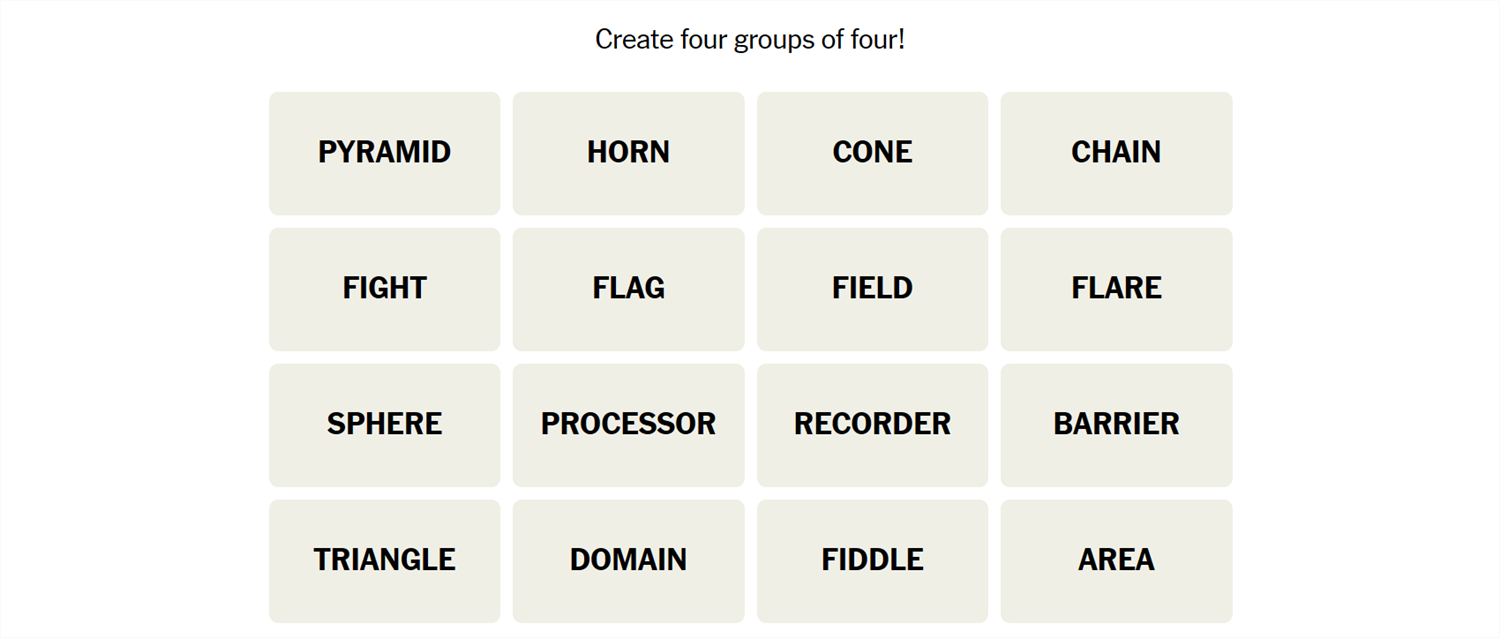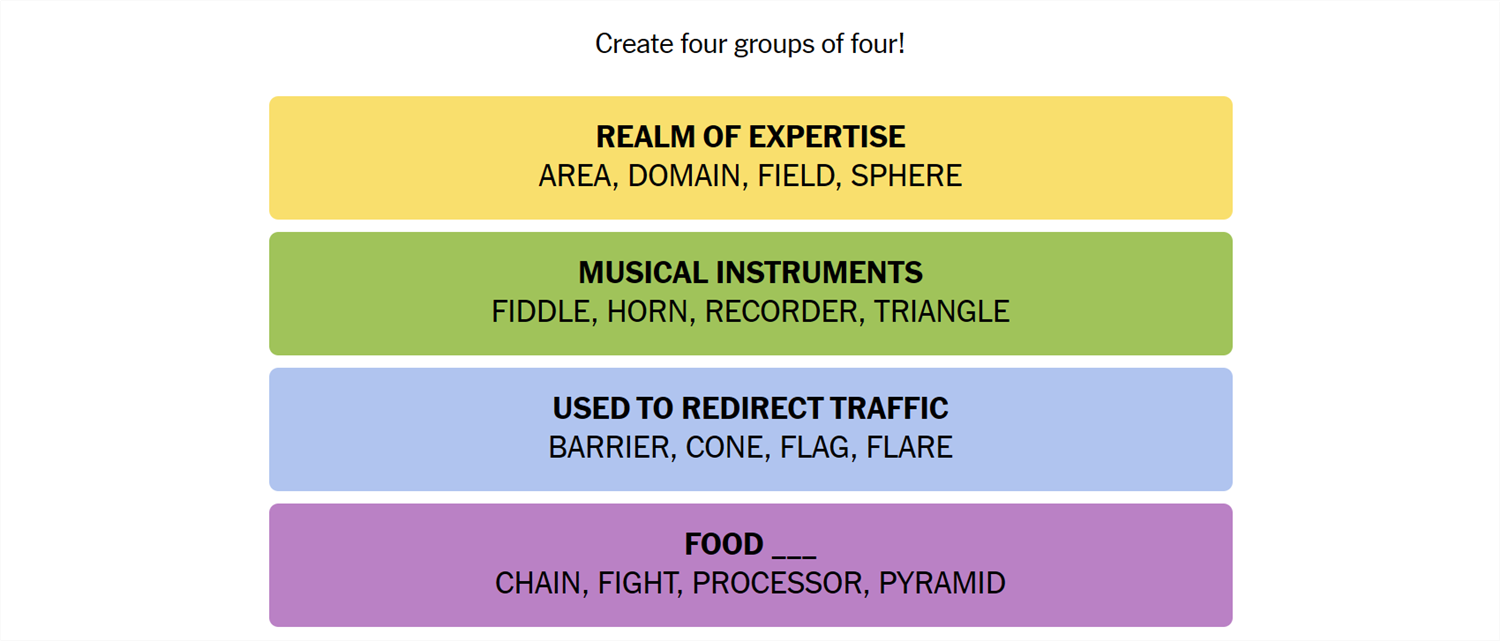Connections is a game from the New York Times that challenges you to find the association between words. It sounds easy, but it isn’t—Connections categories can be almost anything, and they’re usually quite specific. If you need a hand getting the answers, we’ve got you covered.
What Is Connections?
Connections is a game from the New York Times. The objective is simple: sort 16 words into groups of 4. Each group of words will be connected by some common idea or theme. That common element could be anything. We have seen everything from games that rely on the number of letters in the words to categories that require you to spot an extra letter at the end of the word. Sometimes they’re references to economics, other times they reference fairy tales. There is no telling what sort of association there will be between words.
Once you’re confident you understand the connection, select 4 words, then hit “Submit.” You have only four attempts in total, so don’t be too guess-happy.
Hints for Today’s Connections Groups
Here are a few hints for the 407th Connections game to get you started:
- Yellow: When someone knows what they’re talking about.
- Green: You could also include a guitar or a piano.
- Blue: For when you don’t want people driving somewhere.
- Purple: Related to what you eat.
If you still need help, the actual group names are:
- Yellow: Realm of Expertise
- Green: Musical Instruments
- Blue: Used to Redirect Traffic
- Purple: Food ____
Today’s NYT Connections Answers
Realm of Expertise (Yellow):
Area, Domain, Field, Sphere
Musical Instruments (Green):
Fiddle, Horn, Recorder, Triangle
Used to Redirect Traffic (Blue):
Barrier, Cone, Flag, Flare
Food ____ (Purple):
Chain, Fight, Processor, Pyramid
How Did We Solve This Connections Game?
July 22nd tripped me up a few times.
The first word I looked at was sphere, which immediately got me thinking about geometry. From there, I noted cone and pyramid. However, there weren’t any other three-dimensional shapes in the listed words, so I had to abandon that thought.
Sphere can also describe what you can influence, or be used to describe the topics you know a lot about. With those two definitions in mind, I went looking for other words, and eventually settled on area, domain, and field—all terms related to expertise. The Yellow group was “Realm of Expertise.”
A fiddle, horn, triangle, and recorder are all “Musical Instruments.” They made up the Green group. Luckily, area and domain were excluded already, otherwise triangle might have tempted me into guessing a math-related category again!
Barrier, cone, flag, and flare all bring to mind images of closed or barricaded roads for me, so I stuck them together on a whim. They were in the Blue group, “Used to Redirect Traffic.”
That left chain, fight, processor, and pyramid in Purple. Purple often involves a missing word, so I started by attaching an extra word to each remaining word. Eventually, I realized that the word “food” could go before all the words, and they’d still make perfect sense. Purple was properly named “Food ____.”
How Do You Guess Connections Groups?
There is no quick, reliable way to approach Connections like there is with Wordle, since Connections isn’t algorithmic. However, there are a few things to keep in mind that can help.
- Look for similar parts of speech. Are some words verbs and others nouns? Are some adjectives? Try mentally grouping them based on those categories and see if any other patterns jump out at you.
- Are the words synonyms? Sometimes categories will just be synonyms for a phrase, or very close to synonyms. Don’t rely too closely on this, though. Occasionally, Connections will deliberately throw in words that are sometimes synonyms to mislead you.
- Try saying the words. Sometimes, saying the words helps. One puzzle we saw included the words go, rate, faster, clip, pace, speed, move, commute, and hurry—all of which are obviously related to the idea of motion. However, when you say them, it becomes a little more obvious that only four (go, move, hurry, faster) are things you’d actually say to prompt someone to get moving.
- Expect the red herring. Connections usually has words that could be plausibly, yet incorrectly, grouped together. Take the words Bud, Corona, and Light, as an example. You might instinctively see those three words together and assume they’re lumped together in a category related to beer—but they weren’t.
- Look for distinct words. If a word on your board doesn’t have multiple meanings or can really only be used in one context, try using that word as the basis for a category.
- Shuffle the board. Sometimes, moving words around will help you look at them in new ways.
If you didn’t solve this one, don’t feel too bad—there’s always tomorrow! And those words may align with a topic you’re interested in, giving you a leg up on the competition.






